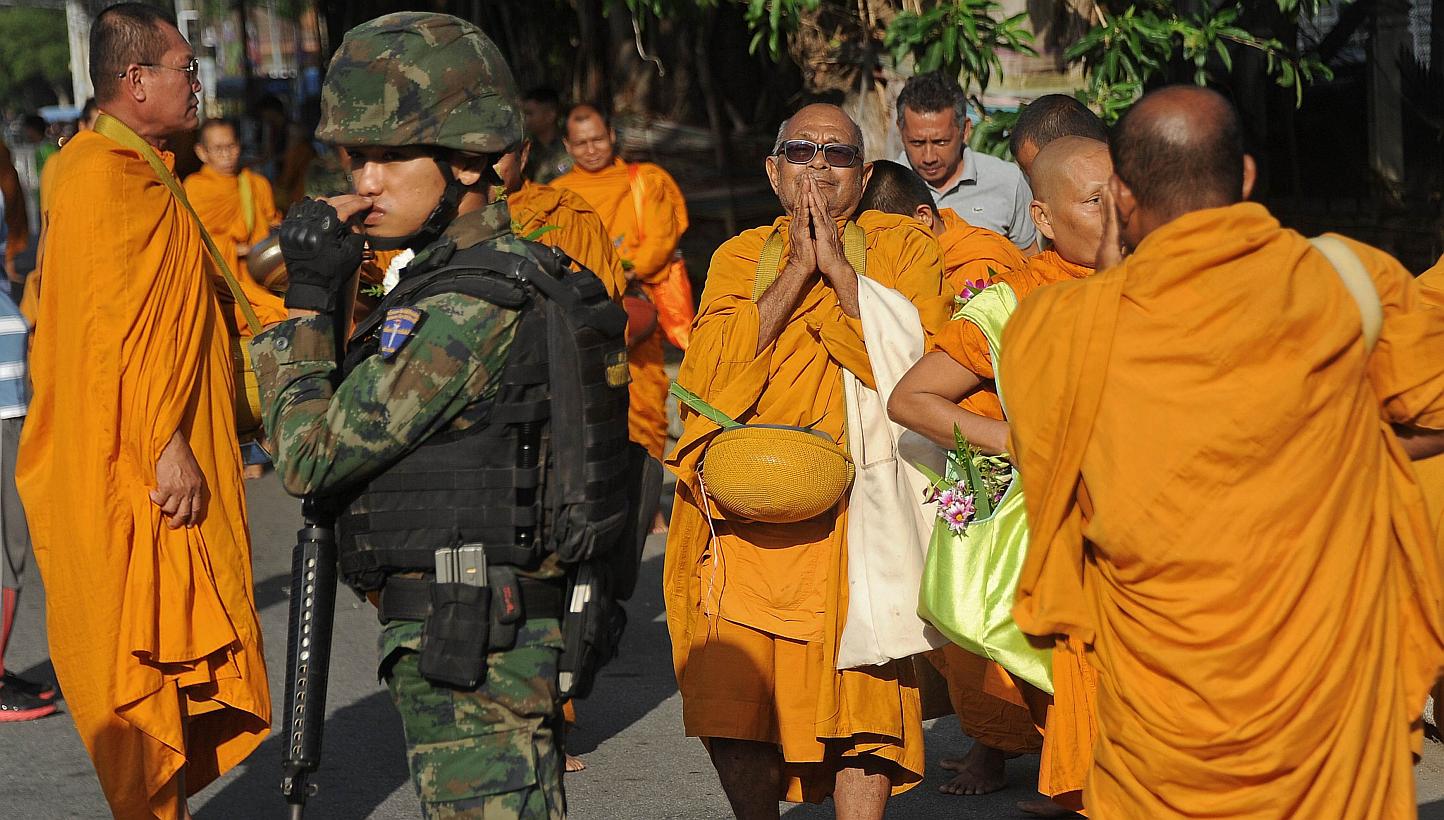What you need to know about Article 44 of Thailand's interim constitution
Sign up now: Get ST's newsletters delivered to your inbox

Faced with a barrage of criticism for replacing martial law with an even more draconian regime, Thailand's junta held a briefing for foreign media and diplomats on Tuesday to defend its use of Article 44 of the interim constitution which grants it absolute powers.
Here's what you should know about Article 44:
What is it?
It gives junta leader and Prime Minister Prayut Chan-o-cha absolute power to give any order deemed necessary to "strengthen public unity and harmony" or to prevent any act that undermines public peace.
The measure allows soldiers to detain people for up to seven days without a court warrant and to prosecute people for national security crimes or those who fall foul of the country's strict royal defamation laws.
It prohibits political gatherings of more than five people, and allows military officers to stop the publication or presentation of any news they deem to be "causing fear or distorted information".
Military courts would still be used for security offences but convictions could now be appealed to higher tribunals.
What does the junta say?
Deputy Prime Minister Wissanu Krea-ngam has said the junta, or the National Council for Peace and Order (NCOP), decided to make use of Article 44 instead of other security laws because previous implementation of security laws had failed. Article 44 can be a fast cure for critical problems that cannot be solved quickly, he added.
"For those who are innocent, whether Thai or foreigner, there is nothing to be afraid of," he told the foreign media and diplomats.
The kingdom's generals had been under pressure from western allies, businesses and tour operators to rescind martial law, after the tourism industry, which usually accounted for around 10 per cent of Gross Domestic Product, said the law put tourists off and made it difficult for some visitors to obtain insurance
What do critics say?
Critics say the article is harsher than martial law. Key ally, the United States, has warned that the measures would do little to loosen the military's grip on power. UN High Commissioner for Human Rights Zeid Raad al-Hussein has also said the decision to lift martial law "leaves the door wide open to serious violations of fundamental human rights" and "annihilates freedom of expression".
Khemthong Tonsakulrungruang of Bangkok's Chulalongkorn University said: "Section 44 is actually worse (than martial law)" as it allows Gen Prayut to execute key decisions without the oversight of a military court.
"When they ask for the martial law to be lifted, what the public is really asking for is the return of basic rights and liberties to Thais. Prayut fails to understand that," he said.
What do supporters say?
Some have defended the military, saying the potential remained for anti-coup protests to upset the uneasy peace imposed since the coup.
"The powers have been reduced," said former prime minister Abhisit Vejjajiva, a staunch pro-establishment politician, adding that those who criticise the new order as the same as martial law are being "unfair".
"They (the military) are looking for a way to try and relax but they are doing it at their own pace and they still feel that they are not yet secure," he added.
SOURCE: AFP, REUTERS


